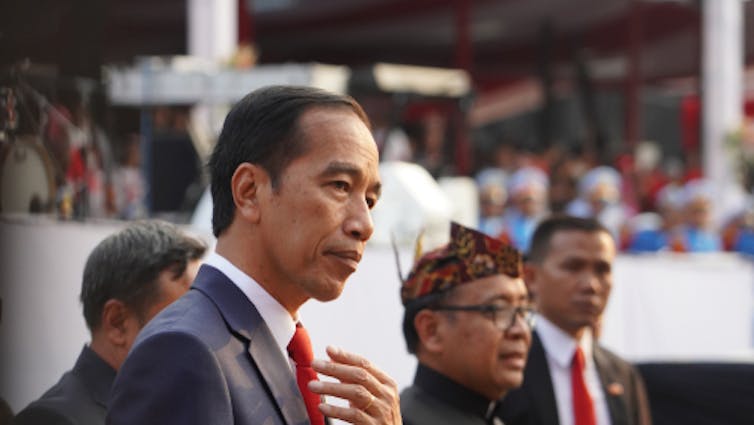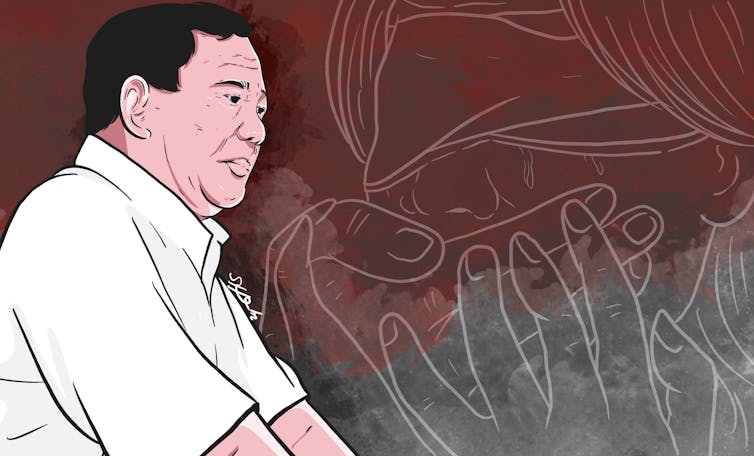Voters in the world’s third-largest democracy, Indonesia, have elected former army general Prabowo Subianto as its eighth president, despite his campaign being dogged by accusations of human rights violations and electoral fraud. According to the latest reliable polling, Prabowo – Indonesia’s defence minister – secured almost 60% of the votes in what is considered as the largest and most complex single-day election in the world. This will likely mean that there will be no second round.
Indonesia will hold the world’s biggest single day election: here is what you need to know
More than 200 million eligible voters in more than 17,000 islands cast their votes at more than 820,000 polling stations. The one-day voting process involved 5.7 million election workers, almost the size of Singapore’s population
200 million voters, 820,000 polling stations and 10,000 candidates: Indonesia’s massive election, by the numbers
.
Given the complexity of the election, General Elections Commission will announce the official result on March 20.But since its first direct presidential election in 2004, Indonesia has relied on quick counts to know their new president on the election day.
According to these preliminary results Prabowo defeated other candidates – former Jakarta governor Anies Baswedan, who is backed by Muslim conservatives, and former Central Java governor Ganjar Pranowo, who is supported by the country’s largest political party, Indonesian Democratic Party of Struggle (PDIP).
Prabowo’s victory is a long time in the making. This is his fourth attempt to run for the country’s top jobs. He first ran as the vice presidential candidate for Megawati Sukarnoputri, PDIP chairwoman, in the 2009 presidential election. The pair lost to the Democrat Party’s chairman, Susilo Bambang Yudhoyono. In the 2014 and 2019 elections, Prabowo ran against the incumbent president, Joko “Jokowi” Widodo. He lost in close elections on both occasions as Jokowi had the baking of Megawati’s party.
It was after his 2019 election defeat that Prabowo accepted the offer of a job as Jokowi’s defence minister.
In this year’s election Prabowo teamed up with Jokowi’s eldest son, Gibran Rakabuming Raka, after a dispute between Jokowi and Megawati over their choice of candidates. It’s an example of how unpredictable the manoeuvres by politicians in Indonesia can be to stay in power and retain their dignity.
Jokowi’s factor
It is amazing to see how Jokowi rose from an unknown politician back in 2005 when he ran as a mayor of a small city of Solo in Central Java province, to become a kingmaker in the current election.
The Prabowo-Gibran ticket was organised with substantial involvement from Jokowi throughout. Gibran was ruled eligible to stand as a vice-presidential candidate after the constitutional court, led by Jokowi’s brother-in-law Anwar Usman, overturned a requirement that the candidates must be at least 40 so that his 36-year-old son could run.

Not surprisingly, the opposition cried foul. Many declared that the election was no longer about continuing Jokowi’s legacy but about saving democracy.
Three days before the election, a film exposing alleged electoral fraud involving Jokowi went viral. The film alleged that Jokowi painstakingly rigged the election so Prabowo and his son could win.
Three leading academics – Bivitri Susanti, Zainal Arifin Mochtar and Feri Amsari – who were interviewed for the movie revleaed what they said were Jokowi’s various strategies. These ranged from distributing government funds to potential voters before the election to planting supporters in numerous key provinces. The film’s director, Dandhy Dwi Laksono, and the three academics have been reported to the police.
What does this mean for Indonesia’s democracy?
Many critics are saying that Prabowo’s likely victory is proof of Indonesia’s democratic backsliding. But it remains too early to make any judgements about any real democratic threat from the election.
But Prabowo’s chequered past has been widely discussed, He is the son-in-law of Indonesia long-term autocretic leader Suharto and has been accused of complicity in the disappearances of 13 activists during Suharto’s presidency.
On election eve, all 3 of Indonesia’s presidential candidates have troubling human rights records
.
Democratic safeguards introduced after the fall of Suharto’s authoritarian regime in the late 1990s and the onset of what became known as the reform era are thought likely to prevent Prabowo from becoming an autocratic ruler of Indonesia.
First, Prabowo is not as popular as Jokowi.
Unlike Jokowi, whose stratospheric approval rating of 80% gave him a lot of leeway to test the limit of his power, Prabowo is not that popular. Until Jokowi gave him tacit support, Prabowo consistently placed second behind Ganjar at around 20% of the vote. It’s unlikely that Prabowo could have even achieved the runner’s up position had the election been held a year ago. Prabowo’s political party, Gerindra, sits in third place, according to the quick count, behind the PDIP and Golkar.
Further, Prabowo’s reputation as a strongman may have attracted many people to support him – but is has simultaneously meant that many voters are wary of him. Regardless of how corruptible political parties are, it is difficult to see that they will be willingly giving up the hard-won power that they gained in the aftermath of Suharto’s dictatorship to Prabowo.
And, importantly, the military does not necessarily support Prabowo. As an institution, the military has always prided itself on following the rule of law and constitution, especially after the reform era. It is difficult to see that the military may want to risk its hard-won reputation and public trust to support any moves Prabowo might make if elected to undermine democracy.
And the experience of Myanmar next door should give them a pause: the 2021 military coup in Myanmar has ended up plunging the entire country into a civil war. Myanmar’s powerful military, the Tatmadaw, is losing ground steadily to armed ethnic and opposition groups.
The other factor to bear in mind is Jokowi’s enduring popularity. There are those who think that he might be tempted by the extent of his popular support to continue to interfere in politics via his son Gibran’s vice-presidency. There are those who feel he used non-democratic means to influence the election and secure Gibran a place on the ticket.
Weeks before the election, civil society organisations as well as academics and activists spoke out against Jokowi for what they saw as his his political manoeuvring to retain political influence.
Perhaps Prabowo’s victory is a blessing in disguise for Indonesian democracy if it means people will start seriously agitating for democracy – and no longer take it for granted.

Shinta Saragih/The Conversation Indonesia, Author provided (no reuse)




